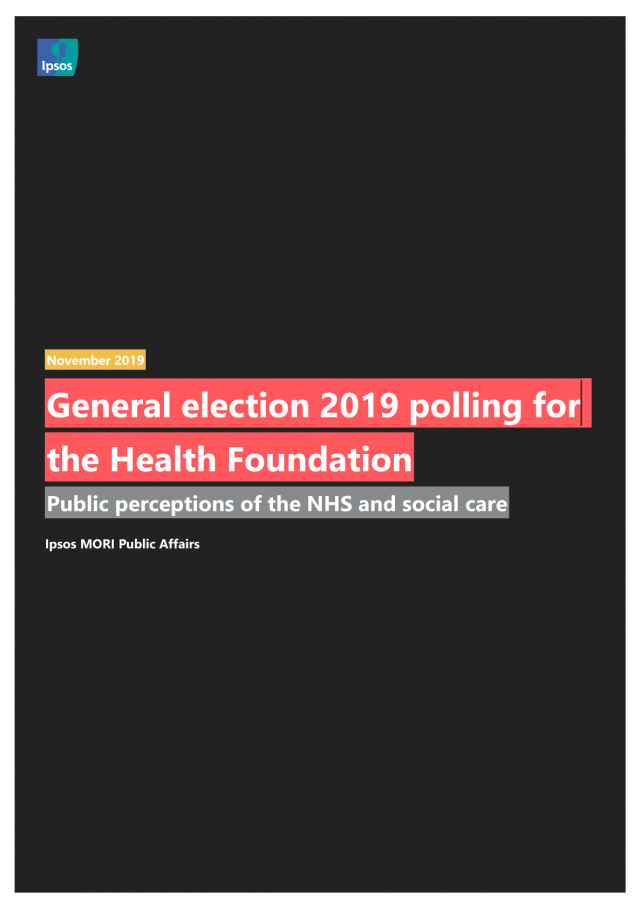Public perceptions of health and social care Results from an Ipsos MORI poll commissioned by the Health Foundation for the 2019 General Election
December 2019

Key points
- This report presents the findings of a research project commissioned by the Health Foundation and conducted by Ipsos MORI.
- The polling suggests there is an increasing willingness among the public to pay more tax for health and social care.
- A majority of people – 62% – said it was completely or somewhat unacceptable to have to sell your own home to pay for social care.
- An increasing proportion want to see NHS-funded care delivered exclusively through the NHS (as opposed to via private providers).
- The polling also indicates very strong support for EU workers in the NHS and social care being allowed to stay in the UK after Brexit.
This Ipsos MORI survey was commissioned by the Health Foundation for the 2019 General Election.
It found people are willing to pay more tax to maintain and improve health and social care. The public also highlighted a lack of investment in the NHS and long waiting times as the top issues facing the health service, followed by an insufficient and overworked workforce.
The findings come as the nation considers the different approaches to tax and spending presented by the political parties during the 2019 election campaign. The survey highlights that public support for a tax-funded NHS, free at the point of use, is growing (72% agree strongly with this principle, compared to 66% in May 2017 and 60% in March 2015).
On social care, nearly two thirds (62%) of people said it was unacceptable to have to use the value of your own home to pay for social care. Nearly half (46%) said it was unfair that people are means-tested to receive social care, while 37% said they thought it was fair.
The survey also reveals public opinion about how the UK’s departure from the EU will affect the NHS. When discussing the impact of a no deal Brexit on the NHS, of the 63% who highlighted at least one possible negative impact, the most frequent concerns were: staffing shortfalls caused by EU doctors and nurses leaving (32%); a shortage of medicines and other supplies (31%) and increased prices of medicines and other supplies (28%).
Nearly 2,000 people aged 15 and older were interviewed. The fieldwork took place between 8 and 17 November 2019.
Further reading
Work with us
We look for talented and passionate individuals as everyone at the Health Foundation has an important role to play.
View current vacanciesThe Q community
Q is an initiative connecting people with improvement expertise across the UK.
Find out more

